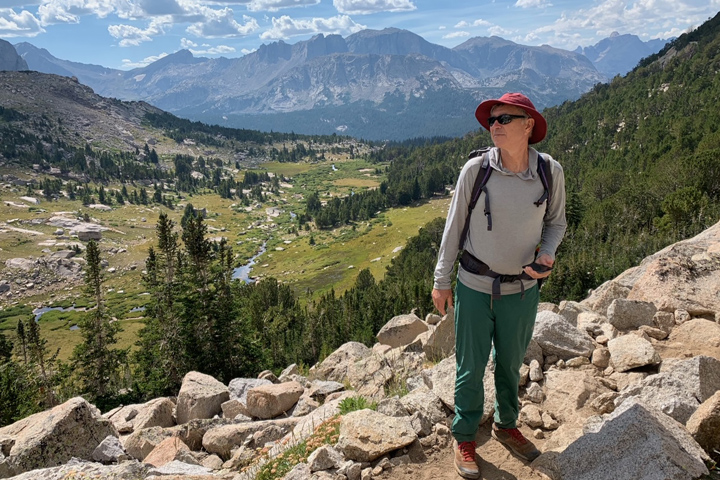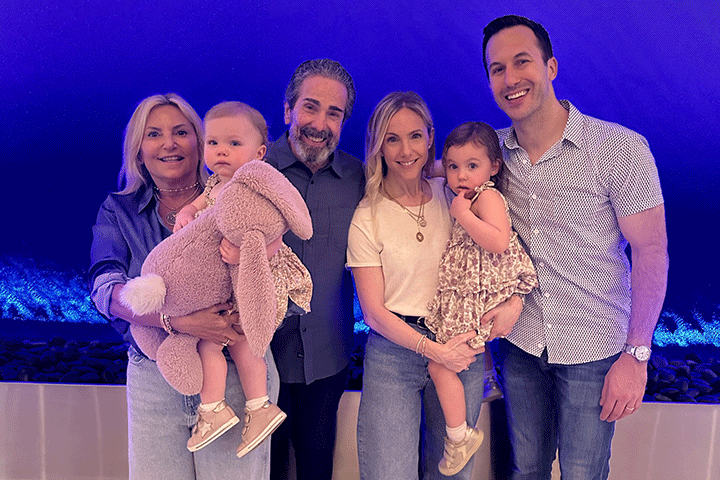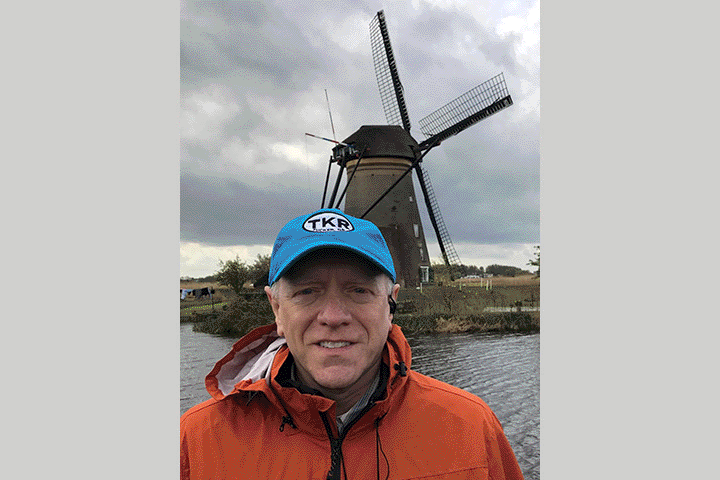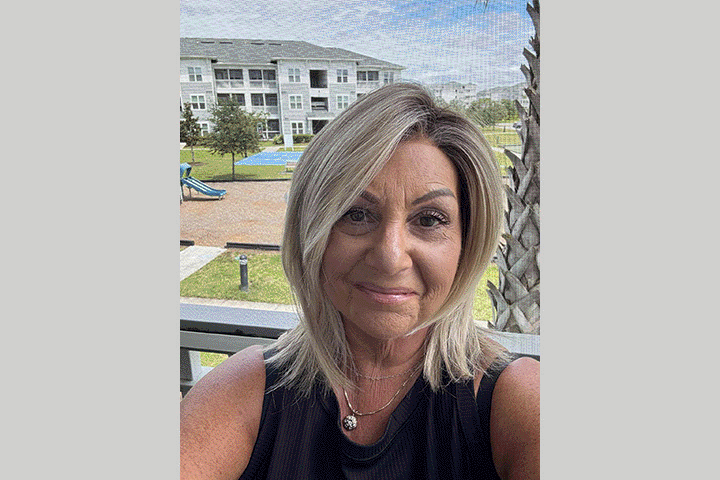Taking Life with Pancreatic Cancer One Day at a Time

- Blood work indicates possible pancreatic cancer; a scan shows stage IV
- Chemotherapy with FOLFIRINOX
- Genetic testing shows BRCA1; treatment with Lynparza
- Back on FOLFIRINOX, then switching to gemcitabine and cisplatin
- Virtual tumor board to look for a clinical trial
- Starting Abraxane
In January of 2020, I was doing my annual checkup with my primary care physician.
We did a routine blood test, and the results indicated the possibility of cancer. My doctor asked me to do an ultrasound at U.C. San Francisco (UCSF), and they found a lesion in my liver right then and there. I had stage IV pancreatic cancer, and I was given three months to live.
My Initial Experience with Treatment
I was fortunate to have a good team supporting me, with doctors from Stanford, UCSF, and locally in Marin County. First, we jumped on chemotherapy (FOLFIRINOX), which helped. I was also lucky to have the BRCA1 gene, which allowed me to try Lynparza (olaparib), and that worked for maybe a few months.
I then went back to the same chemotherapy since it had worked well before. But in January of 2021, chemotherapy stopped working, and I started to have issues with my liver because the biliary drain was getting squeezed by the lesion. My bilirubin levels went up, and we put a stent on the right side, but we couldn’t get to the left side. So I switched to another platinum-based treatment, a combination of gemcitabine plus cisplatin, which worked for nine months. So I was very lucky.
Next Steps
Back in 2020, I was told that I needed to be ready for my treatment to stop working. This year I’ve been looking at more options. I spoke to my doctors and found that they have a very limited view of clinical trials; they only look at what’s available at their own office, and that’s it.
So it was my responsibility to call every oncologist in the nation to find something, but of course I’m not qualified for that. I needed somebody to help. That’s when Dr. George Fisher at Stanford suggested, “Why don’t you talk to Cancer Commons?”
I started working with Lola Rahib at Cancer Commons in March 2021, and what I found is that their scientists are the only ones who look at the big picture and the full options of clinical trials in the region. Lola presented my oncological history to the Cancer Commons Virtual Tumor Board, a group of board-certified oncologists that specialize in pancreatic cancer, and they identified about six clinical trials for me to consider and what they could do for me.
Later in the summer, I started to contact every trial on the list, and chose one to enroll in. But then towards the end of August, the cisplatin stopped working. I got a fever and ended up in the hospital.
Ultimately, although the trial could have been a good option, it would have taken too long to start the treatment due to the screening process. I decided to stick with Abraxane and pass on the trial.
We kept having issues with my external drain from my liver, and because of that, I had to stop all treatment until October 6, 2021.
My Current Status
Unfortunately, by October 6, my blood counts were not good enough yet to restart Abraxane. But Dr. Fisher found a way to buy time, which is to use radiation to target one specific lesion in my liver. It will hopefully shrink the lesion and make my liver work again. Then, the plan is to go back on Abraxane in November.
So here we are now, waiting until November, when I was originally afraid to delay until October 6. But at least I am buying time. And I am feeling good for now.
Navigating Cancer Treatment
Even when you have good support, you’re kind of alone in the process. Because doctors in different locations don’t talk to each other. There’s no guardian angel watching you all the way through. You kind of have to watch out for yourself and communicate between doctors and reach out to get their attention when you need it. And it’s so difficult because my wife cannot do it, I cannot do it. You need medical knowledge to make a decision.
And I have a lot of resources available to me; I don’t know how people without means and without support could get through this.
Patients need to keep track of their own medical record, which is a lot of work. They have to go to each platform and download their information, and then provide it to each member of their team. Managing this is a big, big job.
For example, I am an engineer, and every week I put my main key blood count lab results into a chart. So I have the history of my liver function and platelet levels, and things like that, going back to January 2020, and I can show this to my doctors right away. Without that, my doctors outside of Stanford would typically only be looking at the most recent lab result and wouldn’t have a good picture.
Someone who is very weak from cancer is not going to be able to do things like this, contact clinical trials, and make everything happen. I think Cancer Commons can help with that, but it takes a lot of resources.
The Bigger Picture of My Life
I am 63 years old, and I am lucky to have a great life. Two boys, a wife. I have been able to have a pretty much normal life until about a month ago. I was backpacking, I was hiking like crazy.
One of my strengths is to appreciate what I have. After being given three months, each of these extra days has been a blessing for me.
And this is a time in my life when my boys are independent, I am financially independent. So the timing would have been much worse 10 years ago when the kids were in high school.
There’s a rock climber, a free climber, named Alex Honnold who says that life should be judged based on the quality of what you do, and not the quantity. He means people are often focused on living the longest, but that’s not the point, the point is actually to live life to the fullest. I like that idea very, very much.
So what’s the point of trying to live badly for one more year? I am fortunate to be able to focus on the quality of my life.
Right now I am in a bad spot, and I need to go back on Abraxane. If I can, I’ll have another six months’ time horizon. If not, I’m in trouble. We’ll see; one day at a time.
François worked with Cancer Commons’ Virtual Tumor Board, and agreed to share his story with both organizations.
François passed away in December 2021. He lived life to its fullest even while facing pancreatic cancer. We offer our deepest sympathy to his family.





